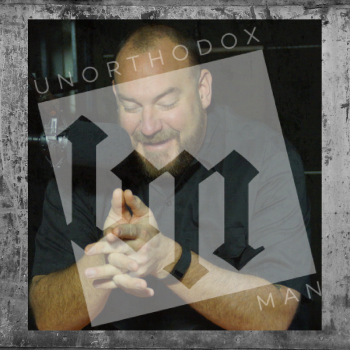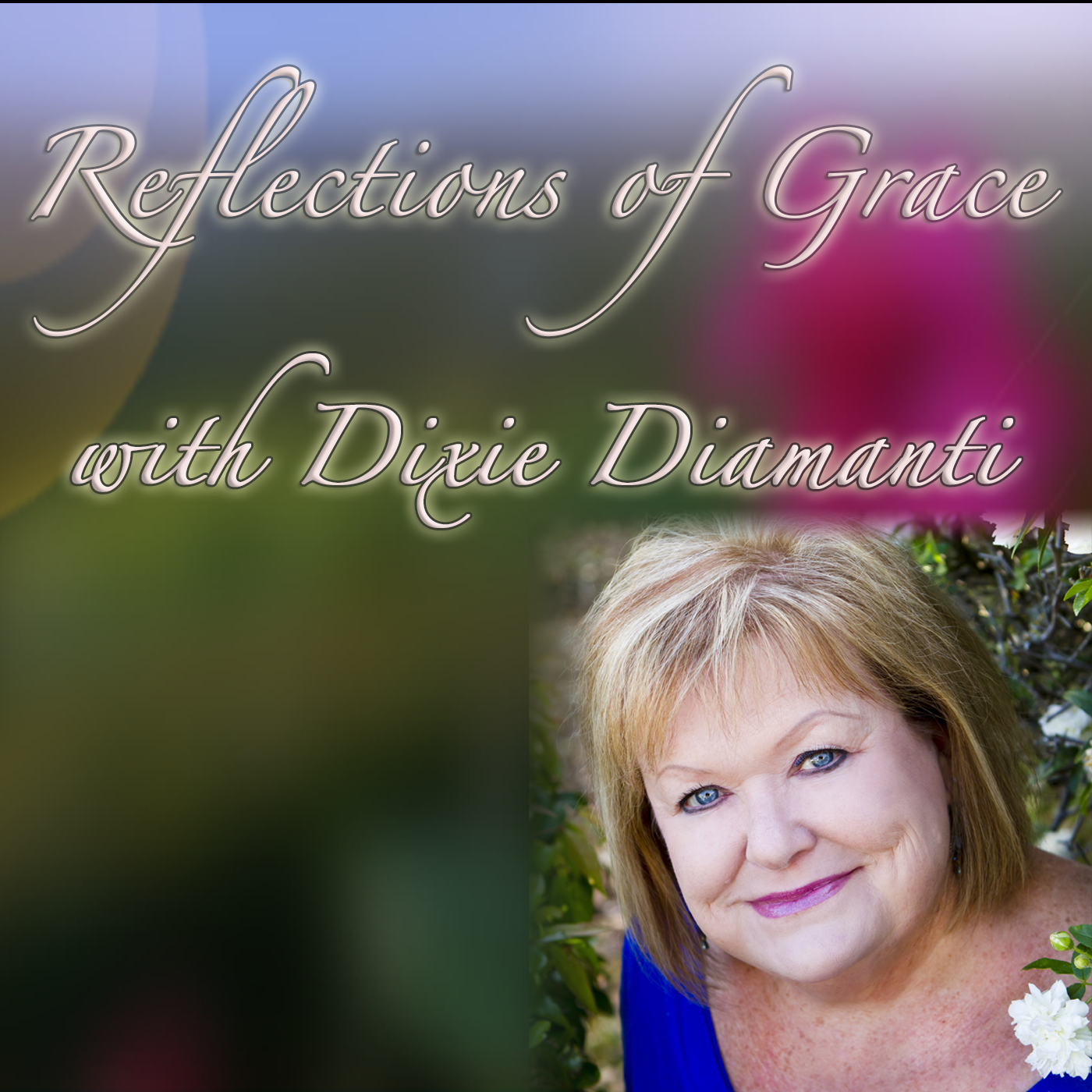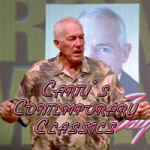My Daily Walk – To Ideate

My Daily Walk is a podcast with a Holywood personality who records a podcast when he goes for a walk. To Ideate, today’s topic is really about words and how they come into being and how they enter the dictionary.
Sticks and stones may break my bones, but names will crush my soul. Wait, wait, wait. Sticks and stones may break my bones … Will never hurt me. Sorry. I got that last part wrong. I don’t know the origin of that children’s phrase, or that little saying, but what a pernicious lie for young people to believe, that words have no injurious effect. On the contrary, isn’t it the power of life and death that are in the tongue, and that words are utterly powerful?
Good morning, and welcome to My Daily Walk, the half hour daily podcast where some anonymous Hollywood guy walks around and talks about everything and anything, except of course, the things he can’t talk about because he’s constricted by a non-disclosure agreement, contractually obligated to conceal certain things. But I can talk about a whole lot of other things. Anyway. So, good morning and welcome to day one of week two. Before I left the house on my walk, I meant to go over my list of topics for the week, but because I was running a little bit late for my daily departure and I neglected to do so, but I think I can off the top of my head recall.
Today’s topic is really about words and how they come into being and how they enter the dictionary. I don’t know which order in particular, but I am going to spend one episode talking about, I believe I mentioned at some point last week I have, like, seven different projects I’m working on. I mean, I could list ten more than that, but I just pulled that number off the top of my head. But I think I’ll go through the top seven, a quick overview of the different projects that I have on the back burner, in the hopper, whatever the expression is.
So, seven topics, or seven projects will be one day’s episode. Maybe that’s tomorrow. It’s tomorrow or Thursday, I do think Wednesday I have reserved for the topic of bloodlust. What exactly is that? I treat it as a kind of a virus or a disease, a disorder, a sickness, something abnormal. Bloodlust. Then Thursday, the subject or the topic that I wrote down is a hundred billion nuclear bombs. We’ll just leave that right there. And I think Friday, you know what, I’m not going to say what I think Friday is because I might be wrong, so I don’t want to mislead you and then lock myself into a topic. So anyway, there’s some of the topics that I’ll be talking about this week.
Last Friday, the topic I left off with, let’s see if I can remember this. What was it? Oh, yes. Meeting the author. So if this is the first segment that you’re listening to and you’re interested in … Last week, I discussed meeting the author, talked about writings and certain stories, a book that I’m reading, plus some ancient texts that make some pretty incredible claims, and how it is you can verify those claims. I mean, really, meeting the author would be the best, but if it’s in the past, what can you do? I don’t remember where the conversation went last week. So, if you’re interested in that at all, go back and listen.
Oh, before I get too far, I do want to mention the e-mail address, I guess, in every episode. It has been established. I haven’t tested it yet, but by the time you hear this it will have been tested. E-mail address if you want to get in on the conversation or suggest topics or tangents, you can e-mail me at [email protected].
So, sticks and stones may break my bones, but words will crush my soul. That’s the intro that I thought of this morning. I’m like, “Does that relate to what I wanted to talk about?” Yes it does, kind of. Maybe it’s a better tease or a misdirect, but really the topic I was … Last week or week before, I was thinking about where ideas come from. Ideas, so that’s related to words. I mean, you communicate ideas through words, there’s no other way. Written words, spoken words. And the way we speak about ideas, “I had an idea,” “A thought occurred to me.”
Well, which is it? You had an idea or a thought occurred to you. Is that the same thing? We use it the same, and for all intents and purposes it is the same thing, but the way we express it actually means something different. Which would be more accurate? “I had a thought.” Or I had an idea or thought. The word thought and idea is interchangeable in this instance. So, “I had an idea.” In that instance, we are laying claim. I. I am the originator of this idea. “I have an idea.”
But then, “The thought occurred to me,” or, “An idea occurred to me.” In that instance, we are not laying claim. I mean, we are because it’s still self-referential. Occurred to me. But when something occurs to you, it starts outside of you. It has to originate elsewhere. Right? We are asserting that this thing just happened to me. “I was driving along, minding my own business, and out of nowhere this truck just blows past me or cuts me off.” You know, there’s an external world of events, of agents, agencies that are causal in bringing things about, bringing things into existence or bringing things about.
The notion that a thought occurring to me, I think, even if linguists will say, “Oh, it’s just kind of metaphorical phrasing. It’s just a way we have combined words to get a point across. It doesn’t really mean it happened to you. It’s just another way of saying that you originated an idea or it originated from within.”
I kind of disagree with that notion. When a thought occurs to you, I would argue that it originates … Well … Long pause while I think this through. I’m not saying that we are not originators of ideas, that humans are not. I mean, but I think it is irresponsible to assert that that’s the only source of ideas. When a thought occurs to you, very often it’s something you’ve already heard somewhere else. It’s, perhaps you were processing something and you were putting two and two together, maybe two different points of view or something you were listening to, and it strikes you at a certain moment. It just comes back to you from your memory. And maybe you don’t consciously recognize that’s the process happening, but, you know, we don’t really know how we work, how this thing, this complex machine really functions.
We are machines. We’re very different machines, we have some kind of power source that’s not … Okay, we won’t get into metaphysics and all that right now. But, we don’t really understand how the mind works. There’s plenty of theories, lots of good theories and theories that you can apply that help you move forward in life. But we are very complex, and I don’t just mean physiologically. We’re astronomically the most complex systems in existence, the human body and mind. There is no match. There is nothing, no comparison anywhere in the universe, not even the most powerful processor or super computers. Just the … I don’t want to go out on a limb too far, but there’s nothing comparable to the human machine, and that holds true also for each individual having our own experiences and processing and how we respond to stimuli of things that we love, things that we hate, things that we care about, things that motivate us and drive us forward.
It’s just this incredible … Every single human, I believe, would benefit from therapy. I would say therapy has this pejorative connotation now … Well, maybe it has always had the certain stigma attached to it, but what is therapy? It’s just talking to somebody. It’s just talking to an expert or somebody who’s trained in listening. Trained listeners. They’re also wise and they’re able to interpret or see objectively, where it’s impossible for us to see objectively. If you have a therapist that is worth their salt, they can remove, they can separate out the emotions that cause some of your thoughts to be cloudy and your conclusions to be irrational, et cetera.
I haven’t seen a therapist in a while, and I would love to. If you’re listening to this, you might say, “Yeah, you better get in there real quick.” But, the bottom line is talking to someone who is wise, it’s along this tangent of … The fact of the matter is, I believe we too often lay claim for the ideas in our heads even though we … I would say it’s irrefutable that we are one source or a source of ideas, but what’s the ratio? What percentage of things that we say and act upon can we lay claim to, and what percentage are ideas that were put there from elsewhere, some influence, whether it’s a teacher or an artist, a friend, an authority over you who has taught you some things. Ideally you will have processed everything you’re taught and ferreted out anything that is wrong and irrational. I think humans tend to have pretty good … I’d say we’re fairly competent truth detectors, once we’ve processed multiple sides of an issue.
I always get back to mathematics. You know, two plus two equals four, two plus three equals five. These are things that we don’t have to argue over. We’ve already processed it. If somebody proposes an alternative result, an alternative conclusion, we can readily disregard it. But, I mean, how would we? How could we possibly consider all sides of every subject that we are being presented with? So there are certain, we intuit as humans.
Getting back to the origin of this topic, where it originated, I was actually looking in a dictionary. To ideate, looking in the dictionary. I was looking for a word. I’m like, “Is that a word? Where’d that come from?” And it was during the process of thinking about where ideas come from. Where do ideas come from? And to ideate. To ideate is in the dictionary, and forgive me for not having memorized it, but it pretty much just means the process of coming up with ideas or that process when you have an idea. To ideate. And I asked myself the question, “Well, if you can ideate, that means there is an ideator.” The ideator would be the one who ideates. I mean, logically in the English language. And so I’m like, “Well, is that even a word? Ideator.” And my dictionary app, there was no ideator. Ideate was there, but ideator was not, so that tense of that word is non-existent, at least according to my dictionary app.
And so I got to thinking about, how do words come into existence? The same way ideas do. I mean, you’re trying to convey a concept, and sometimes language is just not there yet. Language itself grows and develops. I mean, there was a time when antidisestablishmentarianism was the longest word in the dictionary. In my lifetime, that was the longest word in the dictionary. At some point, but I believe it’s been passed up now because there’s probably some technical term now that’s actually entered the dictionary that’s longer than that. And of course supercalifragilisticexpialidocious is not actually a word, so … But, ideator is not a word even though ideate is, so enough of the idea is there to where the word can be expanded. And maybe if ideator comes into the common usage, like I can use it and you’ll understand what it means even though it’s not in the dictionary. But it’s not a commonly used word. But that’s how words come into existence. In a way, it’s akin to saying how much is a thing worth. How can you determine the value of a thing? It’s like this trick question. How do you determine how valuable a thing is?
Give you time to contemplate that. Some people just already know the answer, but … How do you determine the value of anything? Well, it’s however much someone’s willing to pay for it. That’s it. That’s the bottom line. Whatever the market will bear. Well, similarly, how do words get their meaning? How do words get their meaning? It’s however a person uses it. However a person uses a word injects it with meaning. Whether it’s a word that already exists and then a new usage of it or new tense or a new … I mean, it happens all the time, every day, all the time, and the mere fact that the dictionary adds new words every year, I don’t know if it’s an annual thing or even more common than that, but language is constantly growing and changing. Some definitions are becoming archaic and falling out of usage, others are coming into existence.
For example, and this I doubt will ever be in the dictionary, but someone very near and dear to me now, when I first met them used the word “hugantic.” Hugantic. I knew exactly what that person was referring to, the meaning, but hugantic is not a word. It’s quite simply a combination of huge and gigantic. And it rolls off the tongue, it’s kind of … And that actually happens all the time. You listen to people talk, and they’ll say things, whether it’s words themselves or sentence structures … Generally, even though a person’s syntax may be way off or even pick the absolute wrong word, context determines meaning. Generally you understand. I mean, if they use a wrong, wrong word, an absolutely wrong, it can be confusing and it usually is or often is.
But context determines meaning, so when you can take any word and put it in a sentence, like, “The other day I took my,” let’s see, come up with a ridiculous example. “The other day I took my fire hydrant for a walk. He loves it when we go out walking. He wags his tail and sniffs the trees to see what his buddies are up to. My fire hydrant is just this amazing, amazing creature that I love and cherish.”
Every one of you know I’m talking about a dog, okay? So context determines meaning, that’s how words get their meaning and slang is just … I still use words that I used when I was a kid. Cool is one that, I don’t think that will ever go away. But then, like, tubular. Right? That one, you say that in front of a modern teenager, they’ll be like, “Excuse me?” Tubular, yeah. So it’s the capillary action happens in these spin tubes that, the fluid or whatever … Okay, yeah, tubular is an actual word, but it was also slang at one point. So, some words stick, some don’t, but that notion of where ideas come from. We humans are ideators even though that word’s not in the dictionary. You know it’s true that we do have thoughts and originate thoughts, but I contend even among the thoughts in our heads, we are not the sole ideators. When a thought occurs to you, it’s coming from somewhere else.
And again, I don’t know what ratio, I don’t know if there’s even any possible way to measure these things. I’m just thinking out loud here. Truth. Truth is a word that … Some people it’s like, “Yeah, duh.” I don’t know, maybe the vast majority of people, like, “Yeah, truth, yeah we understand that concept.” There is truth and there is falsehood. But there are actually some academic fields that avoid that word at all costs, such as history or earth science. It’s, “Well, we don’t use true,” well, I guess science maybe does true and false results. But for example, I was talking to this historian and we were going to go talk to another historian together. The one historian, before the conversation, pulled me aside and said, “When we’re talking about this, try not to use the word truth.” These things are true, because historians are looking back in time, going over documents and they would use terms as … Gosh, I’m going to butcher this. E-mail me if you don’t like what I’m saying or want to correct me. But a historian prefers to refer to things as likely, the likelihood, or accuracy, or probability, the probability that these things happened. This would seem to be a probable event based on these corroborating sources. Okay? So the word truth is just not, “It’s true, it’s true, it really happened.”
Okay, so there’s this threshold, this line they won’t cross, they just won’t use the word true. And me, it’s like, “I know exactly what happened. This says it, this says it, and it’s true.” But that’s a sticking point. And now there’s the difference between lowercase t truth and uppercase T Truth, like are there absolutes or the things that are not subject to interpretation. Is there such a thing as an absolute truth? And I’ll say it right here, I believe so. I mean, I believe we all recognize undeniable truths, that there are certain things that are absolutely wrong. Torturing babies for the fun of it, right? For the fun of it. I mean, I can’t even imagine a scenario where doing that at all could be right, but when you add the “for the fun of it,” that somebody takes pleasure in that, I think there’s a unanimous verdict that that is an absolute truth, that that is wrong.
I just saw a friend of mine, I’m going to avoid him. Oh well. Oh, counting down. Two and a half minutes. All right, so I’ve gone far and wide, far fielded the subject, the topic. What was it? Sticks and stones may break my bones, but names will crush your soul. Words have power. You better understand the words that are coming out of your mouth, because you can destroy people or you can give them life.
And that’s kind of my goal, one of my life goals, my motto. You know, do good, do right, be kind. Speak truth, speak life. That’s a good kind of additional thought. Just because a thing is true doesn’t mean you have to say it or have to interject it. Truth is uncomfortable and can be actually damaging, it can hurt people. But just like pruning a tree or pruning a bush, cutting away the things that actually hinder a plant from reaching its full potential. Let’s just say that. Being pruned, so that’s cutting, it’s actually a destructive action. Well, speaking truth is similar or can be similar, and I would say, hold your tongue until you’ve thought through how you speak, how you are uttering the words. Because it’s not just the words. Not only are you an ideator, a source of ideas, but you are a creator. You speak things into existence. Is that … That’s going to be one of my topics, we’ll get to that. But we all have power in our tongues. Let’s use that power for good.
An original podcast by Christian Podcast Central












